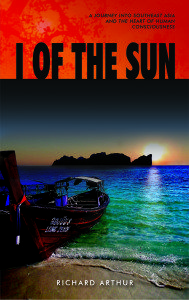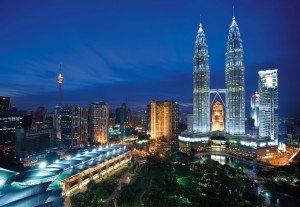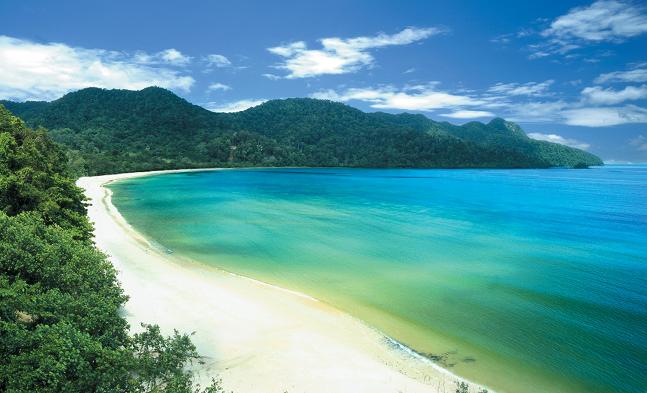A Conversation with Richard Arthur
[dropcap]T[/dropcap]ravel is something that colours many-a students post-university aspirations. After several years cooped up in the educational system, roaming foreign lands and trading in the library for the beach seems like the perfect antidote.
Richard Arthur, author of travel memoir I of the Sun, did exactly that. He too “dreamed of travelling the world for years when growing up” and simply bit the bullet after graduation and “flew off on a one-way ticket with no real plan beyond that”. Quite the joie de vivre. To fund his extensive travels Arthur got a job “working in a bar [on] the paradise island of Ko Phi Phi in Thailand”, citing this as particularly fond memory of his trip.
Published at the end of last year, Arthur’s book charters the tempestuous seas of freedom, adventure and irresponsibility, tempered by drugs, alcohol and women – reading like a more hedonistic version of On the Road. This travel classic was a novel Arthur turned to for inspiration “for the spirit of the road and style of writing” during his own writing process. Whilst “Alex Garland’s The Beach for the location and subject matter, and Zen and the Art of Motorcycle Maintenance by Robert M. Pirsig, for its marrying of the novel with in-depth philosophy”, also became creative influences.
His voyages of discovery began in Malaysia and from there progressed “north up the peninsular into South Thailand”, which Arthur admits had always possessed a “suitably exotic” allure, and had the bonus of being “cheap”. It was somewhat of a whirlwind romance for Arthur, whose heart was won over by Thailand and he remains an inhabitant “there to this day”.
Travelling solo certainly requires gumption and Arthur admits it was a “nerve-wracking” endeavor, but one that informs much of the philosophical exploration and inquiry into free will at the heart of this novel.

“I always felt that it was what I needed to do, in order to really learn more about the world and myself. It was a shock at first, being alone all day and solely responsible for everything you do, with nobody to rely on. But you get used to it and push yourself into situations more and more, and eventually get good at it, making friends everywhere you go and discovering the world by yourself. It can be the most rewarding thing you’ll ever do, but it’s also extremely tough at times”.
The plan to turn his experience into a textual format had struck Arthur before he’d left and subsequently encouraged him to keep “a diary of [the trip]”, which became vital to recollecting memories and vignettes for his “first book, I of the Sun”. The first draft of which took over a year and which Arthur felt to be “the most creative part [of the process, wherein he] relived the trip and conjured up old emotions”. Speaking of the difficulties of writing, Arthur admits:
“I found it nearly impossible to write creatively after work, so it took a long time to cover the one year of my travels. A few drinks helped me get in the mood. In later drafts, the creative side gradually turned into editing work and proofing, which required concentration and patience. I wrote about pretty much everything I got up to that year in a open and honest way, but there were a few little things I kept out”.
The word ‘Sun’ is capitalized throughout the book, as it is in the title, a deliberate decision on Arthur’s part to personify the sun. The title itself alludes to the “sense of it being a travel book in a hot region, but also looks at the question of free will, and determinism…about being alone in the world and what you do in it”.
The narrative perspective of the novel also mirrors this philosophical inquiry, at times “exploring various destinations in the region” complete with Full Moon parties and the kind of alcohol consumption the current backpacker generation will connect with, whilst also switching to a subconscious mode of representation. “It focuses just as much on the effect of travel on the self” which Arthur attempts to capture, and successfully does so, in “a stream-of-consciousness” style. The result is a perceptive and vivid combination of “action-packed moments and epic, existential hangover scenes”. Like a more cultural, and rewarding version of The Hangover 2 then?
The existential themes are rooted in Arthur’s study of “philosophy at university” and frequently “questions if we are really in control of our own thoughts and actions”.
“The premise linking it to the travel narrative, is that the narrator is travelling alone without a plan, and so in a position of complete freedom. This gives him the space to question why he does what he does and the reasons for his actions”.
Despite returning briefly to London, Arthur is once again situated in Bangkok and admits to being compelled back by “the lifestyle in Thailand” and disliking the confusion of “the reverse culture shock”.
In recent years, the ‘gap year’ phenomenon has become quite derided and is often perceived as elitist, immoral and sometimes colonial – in the sense that white, middle-class students set out to ‘help’ Asian or African communities and often with the intention of making themselves appear more interesting. However, Arthur defends “foreign travel [as] one of the most valuable things anyone can do, particularly if you spend a bit more time in places outside the tourist areas and get to know the locals”.
Having also spent time in Laos, Hanoi, Cambodia, Vietnam, Kuala Lumpur and on the border of Burma, Arthur enthuses that travel “is how barriers are broken down and how we get to understand the differences and similarities between [various] cultures”. Arthur advises that if students are looking to undertake volunteer work abroad that you “do a lot of research beforehand to make sure who you do is of actual benefit to all parties”.
Next on the agenda for Arthur are trips to “the Indian subcontinent and South America” and perhaps “a move to one of the Gulf Arab states, which would give me a new base from which to explore”. Though he laments not travelling as much recently as he desires to.
[pullquote style=”left” quote=”dark”]Finally, Arthur urges any students interested in travel, or travel writing to “just get out there and do it”.[/pullquote]
“Travelling with others is still great fun and easier in many ways, but I’d recommend people try some solo travel once in their life. It’s much more rewarding and challenging at the same time. Of course be careful and look after yourself at all times, as there are dangers out there. And if you want to write, then start writing now. Don’t worry about what to write or how good it is, just keep writing and see where it goes. You’ll be surprised how quickly it builds up if you keep at it. After graduating you may never have so much freedom again in your life, so get out there and make the most of it.”
For more links and information on I of the Sun – A Journey into Southeast Asia and the Heart of Human Consciousness, check out the website www.iofthesun.com or follow Richard Arthur on Twitter @iofthesun.

Comments (1)